Content from the Brookings Doha Center is now archived. In September 2021, after 14 years of impactful partnership, Brookings and the Brookings Doha Center announced that they were ending their affiliation. The Brookings Doha Center is now the Middle East Council on Global Affairs, a separate public policy institution based in Qatar.
On June 4, the United Arab Emirates (UAE), Saudi Arabia, and Bahrain dramatically escalated an ongoing conflict with their Gulf neighbor, Qatar. They severed diplomatic ties; closed off air, sea, and land routes; restricted the entrance of Qatari citizens and residents to their countries; and gave their own citizens 14 days to leave Qatar. Egypt also cut off diplomatic ties with Qatar and access to its airspace—but did not cut access to the Suez Cannel, which is governed by an international agreement, nor did it ask its nearly 300,000 citizens who work and live in Qatar to leave.
Frustration with Qatar had been simmering for years, largely over its support for Islamist movements, including the Muslim Brotherhood and Hamas, its cordial relations with Iran, and its practice of hosting opposition figures and giving them a voice on Al Jazeera, its widely viewed television news network. In 2014, Riyadh, Abu Dhabi, and Manama recalled their ambassadors. After a nine-month political standoff, Qatar agreed to close its Al Jazeera Egypt channel and reduce its support for the Muslim Brotherhood. However, Qatar did not meet all the demands of its neighbors at the time, leaving open the prospect of future escalations.
This time, in addition to recalling their ambassadors, the UAE, Saudi Arabia, and Bahrain took unprecedented measures to isolate Qatar economically and socially. The conflict has disrupted trade, affected workers and families, and delayed projects in Qatar and its neighbors. In the short term, the costs will fall more heavily—but not exclusively—on Qatar. However, if the conflict persists, Qatar will develop alternative channels, which could in turn change the economic, social, and political landscape of the Gulf in ways that will ultimately hurt its neighbors.
Ties run deep
Qatar is highly integrated, both socially and economically, with its neighbors, especially Saudi Arabia and the UAE. Qatar imports roughly 40 percent of its food overland through Saudi Arabia, and most of the rest via shipping routes that pass through the UAE ports of Dubai and Fujairah to refuel. Likewise, the UAE gets roughly a third of its natural gas from Qatar via the Dolphin Energy pipeline. In 2015, the value of Qatar’s trade flows totaled over $2 billion with Saudi Arabia, $7 billion with the UAE, and $500 million with Bahrain. Qatar exports more to those three countries than it imports.
Cross-country investments from both sides total in the tens of billions of dollars. The Saudi banking sector’s exposure to Qatar is estimated to be around $30 billion. The UAE banking sector’s exposure is thought to be of similar magnitude. In addition, multinational companies tend to be spread out across the region, with team members often living in one country and working in another. Before the crisis, there were over 70 flights a day between Qatar and its three Gulf neighbors.
Qatar and its neighbors also share strong cultural and family ties. Qatar has a relatively small population of 2.7 million people. Of these, roughly 10 percent are Qatari citizens. An estimated 20,000 Saudi citizens and 15,000 Bahrainis and Emiratis live and work in Qatar (there are no official figures on this, so these estimates are based on a 2014 nationally representative survey of entrepreneurship in Qatar). Furthermore, around 5 to 10 percent of marriages are to non-Qataris from the Gulf. Citizens of member countries of the Gulf Cooperation Council (GCC) can purchase property and wholly own and operate a business in other GCC countries.
The measures taken by Saudi Arabia, the UAE, and Bahrain have split up families until the conflict is resolved. The current crisis has disrupted supply chains, affected the flow of goods and services, and wreaked havoc among companies in the region. Many businesses fear that further escalation will focus on the private sector. These affect Qatar and its neighbors alike, especially those they rely on business development and tourism, such as Dubai.
The current conflict comes at a time of severe economic downturn caused by the fall in global energy prices. Gulf economies are already suffering. Oil prices fell from over $100 a barrel in August 2014 to under $50 five months later. Large projects have been placed on hold or cancelled, payments have been delayed, and salaries and headcounts reduced to cope with the fall in government revenue. The economies of Saudi Arabia, the UEA, Bahrain, and Qatar can ill afford further disruptions.
Economies Blockaded
After the UAE, Saudi Arabia, and Bahrain suddenly severed ties with Qatar, Qatari residents rushed to stock up on food and foreign currency. Transit cargo lingered on Saudi borders, UAE ports, and offshore. This led to temporary shortages in some products. However, within a couple of days stocks had been replenished, with Qatar securing alternative sources from Turkey, Iran and other countries.
Within a week, alterative shipping routes had emerged via Oman and other ports farther away. Within a couple of months, the situation in Qatar would have stabilized. Exports of liquefied natural gas (LNG), Qatar’s main source of revenue, have not been affected much and there is little expectation that they will be. However, the production and export of other products that transit over land through Saudi Arabia, such as helium, may be compromised. Qatar Airways will be affected by the restrictions in airspace and will have to adjust its business model. The costs of some goods imported to Qatar might be higher. However, this may be offset by the lower costs of handling shipments through Oman.
Qatar will have little choice but to enhance trade and integration with other countries, including Iran.
If the conflict persists, Qatar would have developed alternative supply routes, adjusted its development plans and modified the business plans of key industries to accommodate the new reality. Qatar’s stock exchange has stabilized after dropping 10 percent in value in the days following the news. Its large sovereign wealth fund of $335 billion will mitigate against reductions in foreign direct investment. While incurring some losses, these changes will also bring new business opportunities and introduce new geopolitical alliances. Qatar will have little choice but to enhance trade and integration with other countries, including Iran. Over time, these alternative channels will solidify and replace current ties to the GCC.
The long-term economic implications of the blockade is likely to be costly to Saudi Arabia, the UAE, and Bahrain. This will arrive in the form of lost business opportunities, revenues from tourism, and reduced investments from Qatar. It will not be easy for Saudi Arabia and the UAE to find alternative clients in the Gulf region for lost sales from products and services that they provide to Qatar. Even more crucial is the possibility that multinational businesses may hesitate to invest or locate their hubs in countries that place political considerations above business concerns. Businesses choose to local in places like to Dubai, despite its high costs, because of a perception that contracts and trade agreements are secure.
The longer the crisis persists, the more damaging it will be for Qatar’s relationships with its neighbors economically, socially, and politically. The UAE and Saudi Arabia should take stock of their actions and carefully recalibrate the social, economic, and political costs to their own countries. Qatar should avoid escalating the conflict and look for ways to mediate with its neighbors and take steps to address some of their concerns. The international community should act quickly to diffuse tensions in the region before the current conflict results in long-term damage to relationships and more strategic objectives.




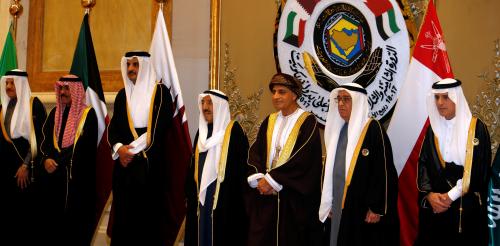
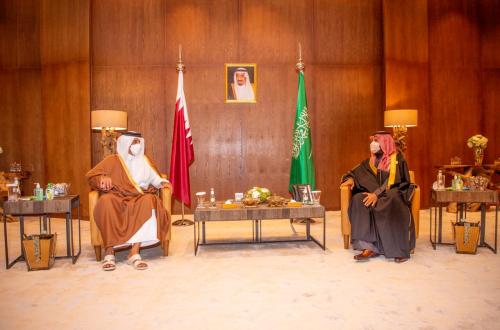

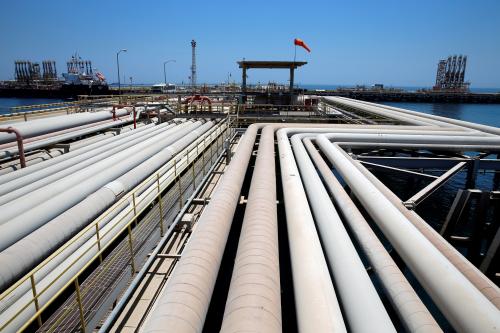
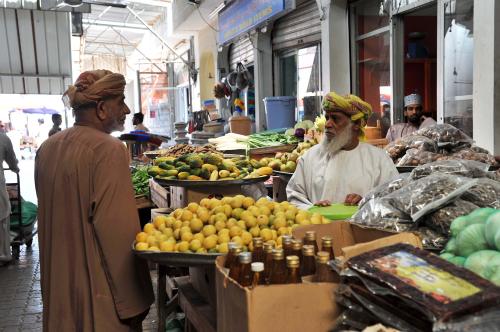
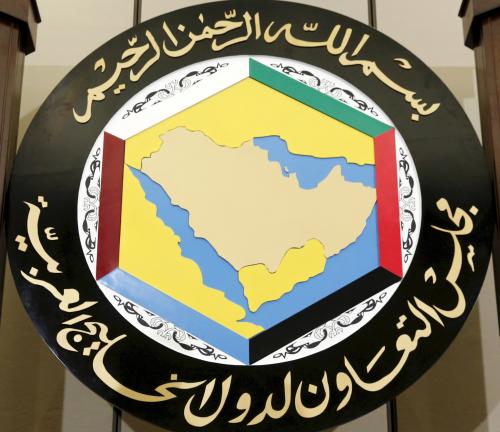
Commentary
The high cost of high stakes: Economic implications of the 2017 Gulf crisis
June 15, 2017